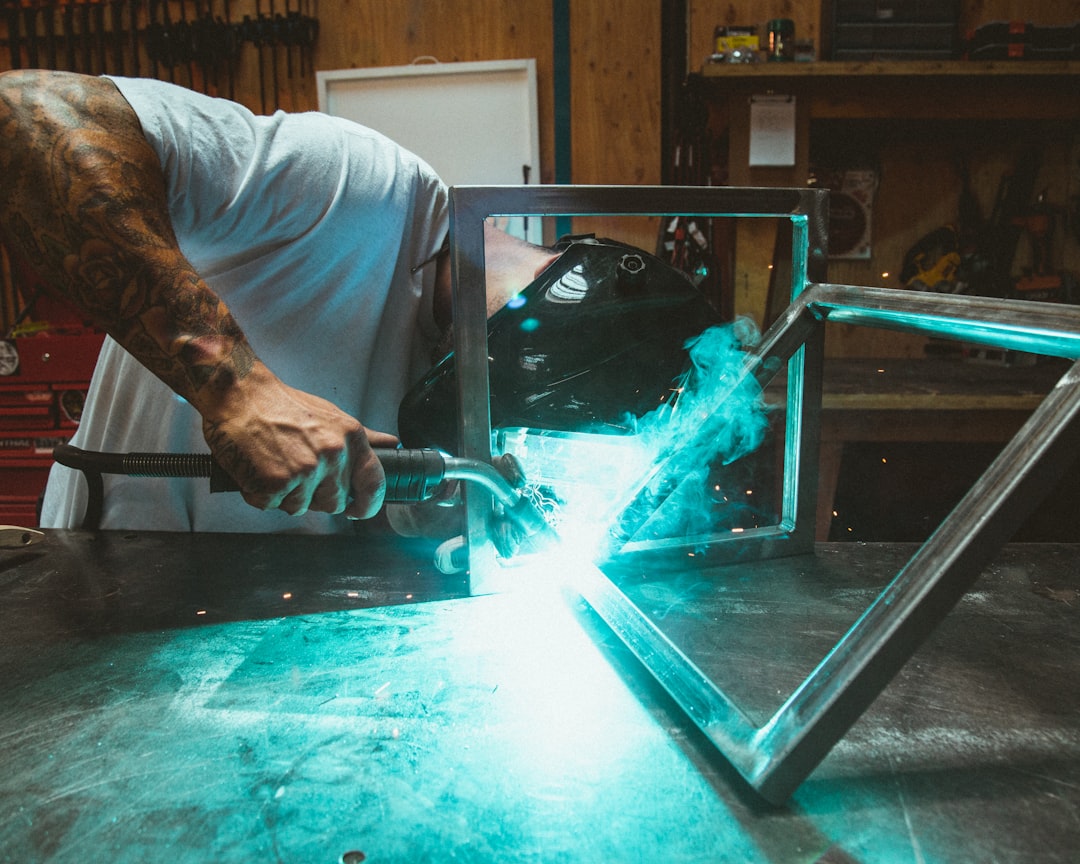Fabrication Engineer Mataaro Piharoa
Fabrication engineers make, install and repair metal products such as vents, handrails, boilers, aircraft and boat parts, or beams and girders for construction projects.
Fabrication engineers may do some or all of the following:
- examine drawings and other instructions for jobs
- draw patterns and cut them out of different metals
- drill and punch holes in the metal for screws, bolts or rivets
- fold, form and shape metal
- join and weld metal pieces
- polish and check the quality of the finished product.
Physical Requirements
Fabrication engineers need to have strong arms and hands, as heavy lifting may be required.
Useful Experience
Useful experience for fabrication engineers includes:
- welding work
- work in an engineering workshop
- any job working with metals and tools.
Personal Qualities
Fabrication engineers need to be:
- practical
- patient and accurate
- good at making calculations and working out formulae
- able to follow instructions.
Skills
Fabrication engineers need to have:
- knowledge of metals and their properties
- knowledge of how to use and care for their equipment
- understanding of safety procedures
- technical skills for drawing and interpreting plans
- welding skills.
Conditions
Fabrication engineers:
- usually work regular business hours, but may work shifts, or have to do overtime during busy periods
- work in workshops and factories and may also work in commercial buildings or private homes when installing their products
- work in conditions that may be dirty and noisy.
Subject Recommendations
There are no specific secondary education requirements to become a fabrication engineer. However, NCEA Level 2 maths, physics, English and technology are useful.
For Year 11 to 13 learners, trades academies and the STAR and Gateway programmes are good ways to gain relevant experience and skills.
These programmes may help you gain an apprenticeship, but do not reduce the amount of time it takes to complete it.
Fabrication Engineers can earn around $60K-$70K per year.
Chances of getting a job as a Fabrication Engineer are good due to a shortage of people interested in this type of work.
Pay for fabrication engineers varies depending on experience and specialisation.
- Apprentice fabrication engineers may start on the training minimum wage, with their pay increasing as they gain experience and unit standards.
- Fabrication engineers usually earn $60,000 to $70,000 a year.
- Senior fabrication engineers, or those working as supervisors can earn $80,000 or more.
Sources: careers.govt.nz research, 2023; Seek, 2023; and Trade Me, 2023.
- Fabrication engineers can progress to work in supervisory roles, or start up their own business.
- Fabrication engineers usually specialise in roles such as:
- Light Fabrication Engineer
- Light fabrication engineers work with light metals such as stainless steel and aluminium to make or repair a variety of metal products, such as vents, handrails and boat parts.
- Heavy Fabrication Engineer
- Heavy fabrication engineers work with steel and other heavy metals to make or repair metal products such as boilers, hot water tanks and components for building and construction.
- Steel Construction Engineer
- Steel construction engineers manufacture and install steel components such as beams and girders for structures and civil engineering projects.
Years Of Training
1-3 years of training usually required.There are no specific requirements to become a fabrication engineer. However, some employers prefer you to have a qualification.
However, to become a qualified fabrication engineer you need to complete an apprenticeship and gain either a:
- New Zealand Certificate in Engineering - Fabrication (Level 4), which is the new qualification
- or a National Certificate in Engineering - Fabrication (Level 4), which is being replaced by the New Zealand Certificate.
For this certificate, you choose to specialise in light fabrication, heavy fabrication, or steel construction.
Industry training organisation Competenz oversees fabrication engineer apprenticeships.
A driver's licence may also be useful.

 Papakura High School
Papakura High School